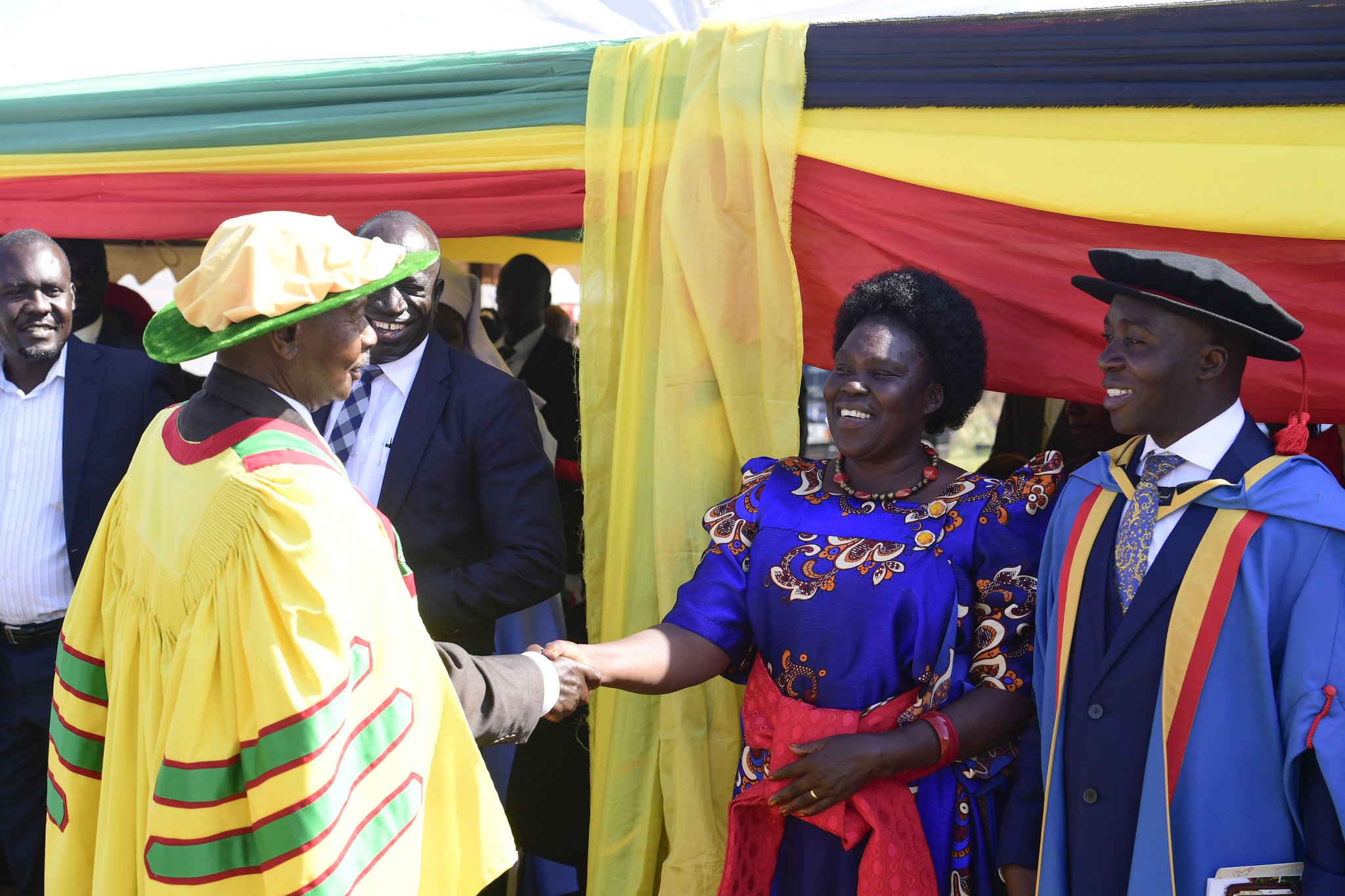President Yoweri Museveni has committed shs.100 million as a contribution towards supporting Gulu University Staff Savings and Credit Cooperative Organization (SACC0), urging the lecturers to diversify their sources of income through entrepreneurship.
The president made the pledge while presiding over Gulu University’s 15th graduation, where more than 1,500 students were awarded undergraduate degrees.
At the ceremony held at the University’s main grounds on Saturday, Museveni commended Gulu University staff and management for maintaining peace and tranquility by rejecting strikes at the now 18-year-old institution of higher learning.
The President reiterated his call to Universities to prioritize science programs that advance innovative solutions to society’s needs while encouraging job-creating entrepreneurship. “All human needs fall in the four sectors of agriculture, industry, services, and ICT. Students should be trained in these four sectors to address the needs of society,” Museveni urged.
In his remarks, Gulu University Vice-Chancellor Gorge Laadaj Openjuru asked for more government support in the area of scientific research, noting that students graduating in agricultural science are doing particularly well because of the practical knowledge they have acquired while at the University.
He commended the President’s commitment to improving the welfare of teaching staff across the country, arguing that it is only a contented staff that can produce resourceful graduates.
In the recent past, Mr. Museveni has consistently argued that his government cannot meet the salary demands of all public sector workers, and has instead urged them to form professional savings groups that the government would support to afford them affordable credit to diversify their incomes.
Last year, the president announced that the same approach would be extended to tertiary-skilled labor groups (he identified 16 of them) like carpenters, tailors, taxi-operators among others, and has now announced that a shs.100billion fund would be set aside to cater for them.
Critics have however argued that despite the President’s good intentions, these constant freebies to mushrooming SACCOs only serve to undermine the development of the cooperative movement in the country, with many youth groups forming SACCOs specifically targeting the president’s money, only to close as soon as they were started.
In 2016 for example, theObserver newspaper reported that Museveni had given out shs.100million and 8 car-washing pumps to ‘Mulago Car Washers’ SACCO’, which investigations found, did not exist until the day preceding the President’s visit.
Andrew Kyepa, the training and programs development manager at Uganda Cooperative Societies Cooperative Union (UCSCU) contends that instead of throwing money into SACCOs which he argues kills the cooperative spirit of self-help and independence, the government should promote an enabling environment for cooperatives to thrive.
Paul Omach, a professor of political science and the Head of Department of Political Science at Makerere University agrees with Kyepa that although there is eminent government realization that cooperatives are “good,” a majority of the cooperatives that the President is trying to promote are not producer cooperatives, but only saving cooperatives. “And where are they getting the money to save; from donations by the president! That’s not how you grow cooperatives,” he says.
Omach insists that people’s livelihoods can only be improved through production. “You don’t improve people’s livelihood just by saying save money, you must have a productive economy. It’s after you have produced that you save,” he says. He warned that privileging politicking ahead of serious productive activities puts the country on a bad development trajectory.
